Existentialism Philosophy: Sartre and Borges Essay
VerifiedAdded on 2022/11/13
|7
|881
|362
Essay
AI Summary
This essay delves into the philosophical concept of existentialism, primarily through the works of Jean-Paul Sartre and Jorge Luis Borges. The essay begins by exploring Sartre's views on the importance of individual choices in shaping one's existence, emphasizing the responsibility that comes with the freedom to choose. It discusses Sartre's rejection of a pre-ordained purpose and his assertion that humans define themselves through their actions. The essay then transitions to Borges' short story, 'The Circular Ruins,' examining its themes of creation, dreams, and the nature of reality. The story is analyzed in the context of the philosophical concept of causa sui, or self-creation, and how it relates to the existentialist questioning of the creator. The essay highlights the cyclical nature of creation and the blurring of lines between dreams and reality, ultimately reflecting on the existentialist themes of identity and the search for meaning in a world without inherent purpose. The references include the works of Sartre and Borges. The essay is a valuable resource for students studying philosophy, providing insights into the key concepts and thinkers of existentialism.
1 out of 7
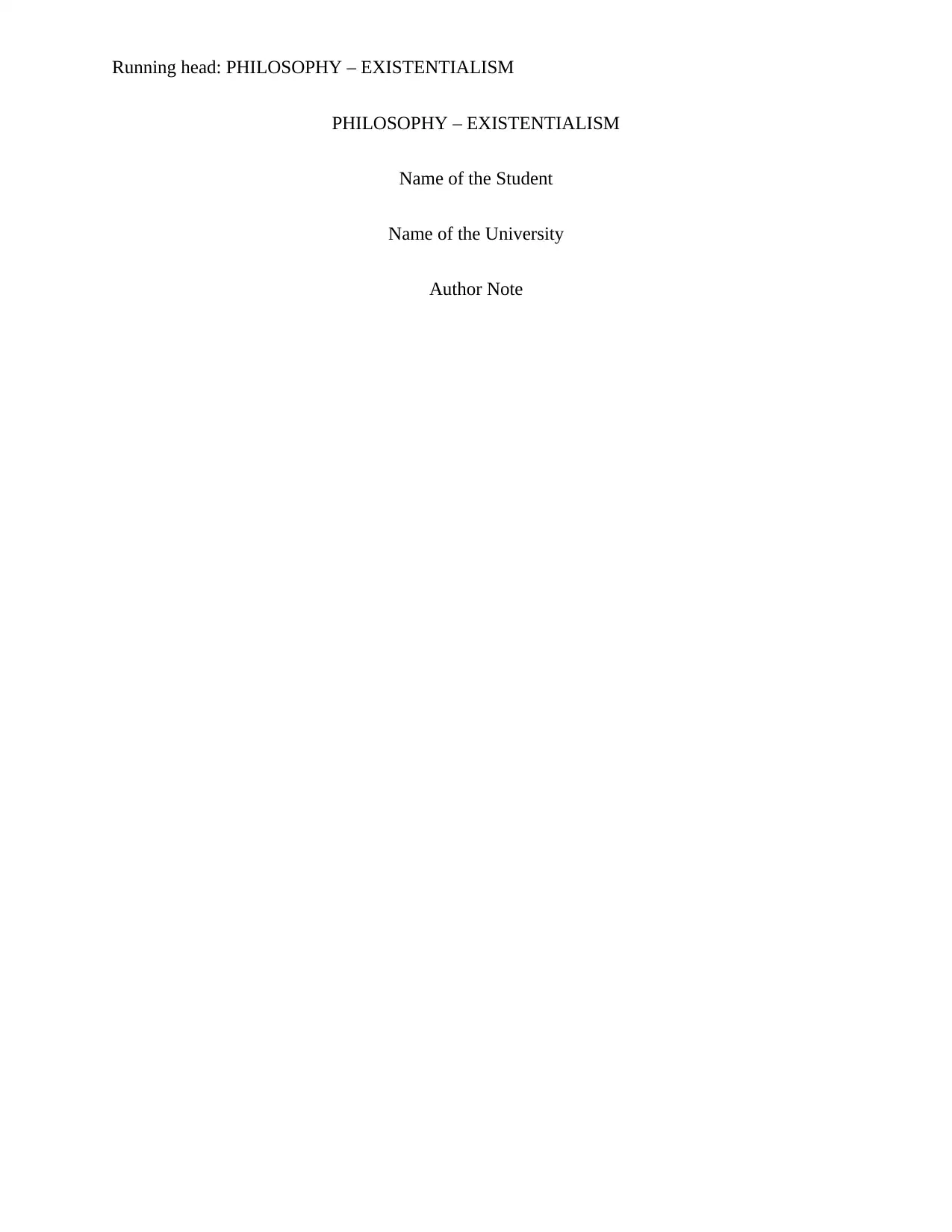

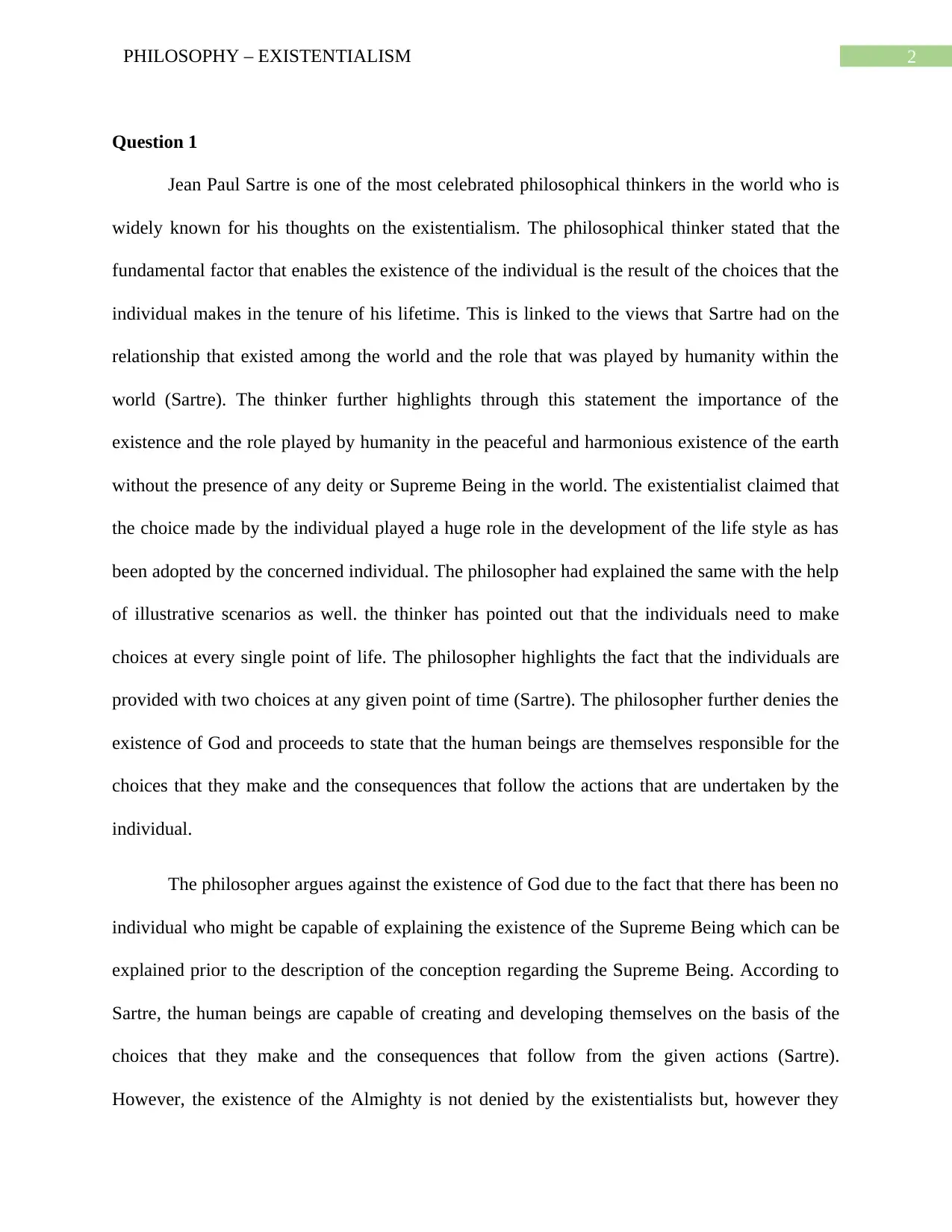

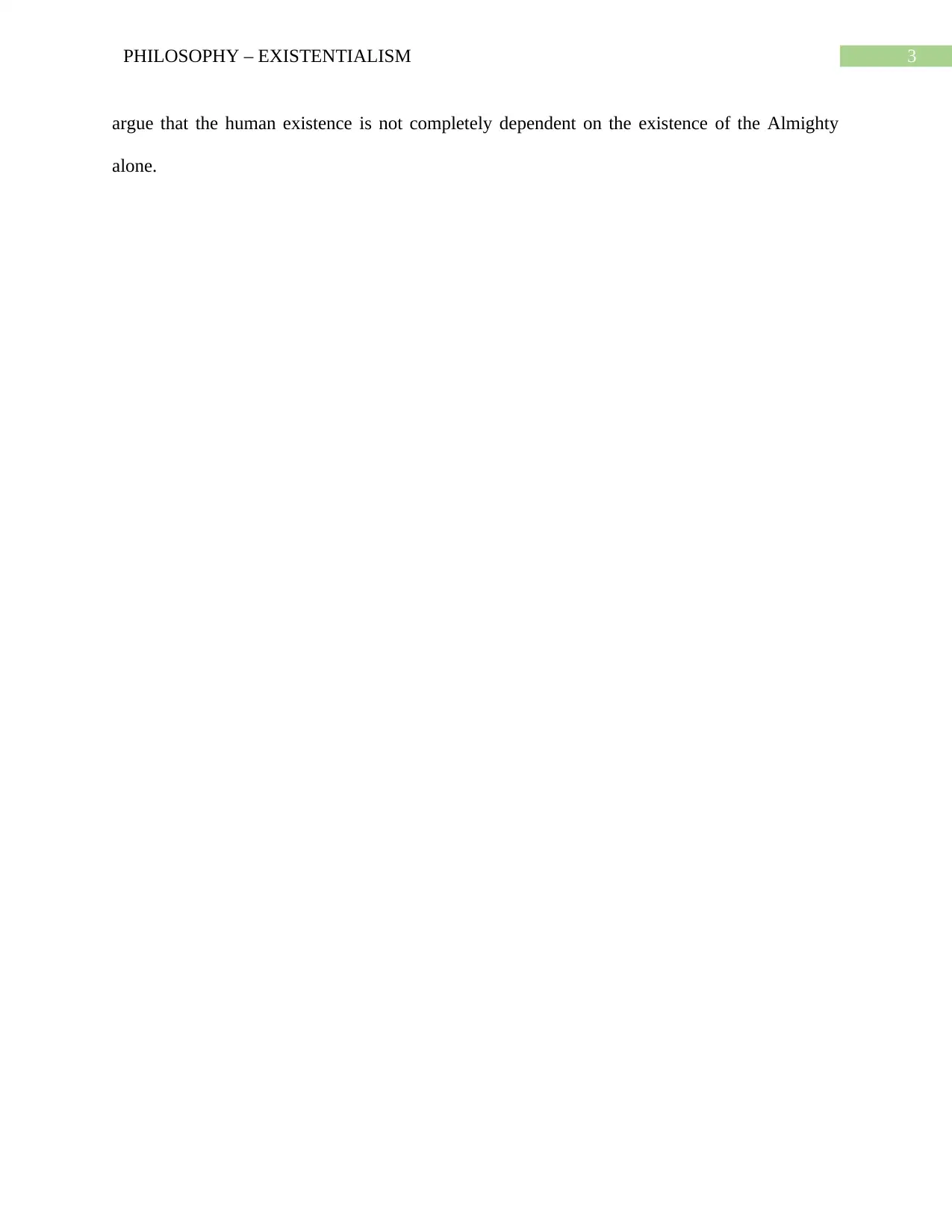
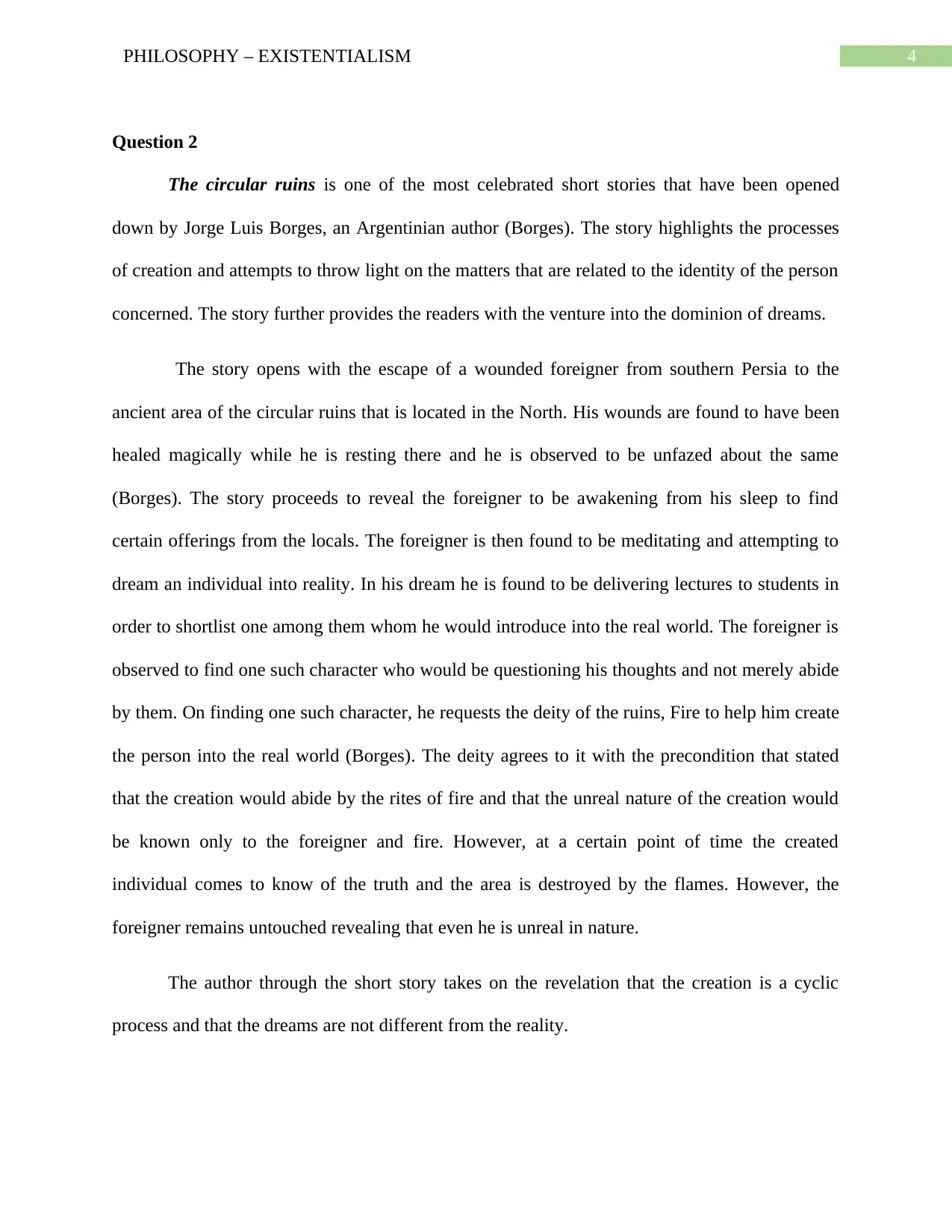
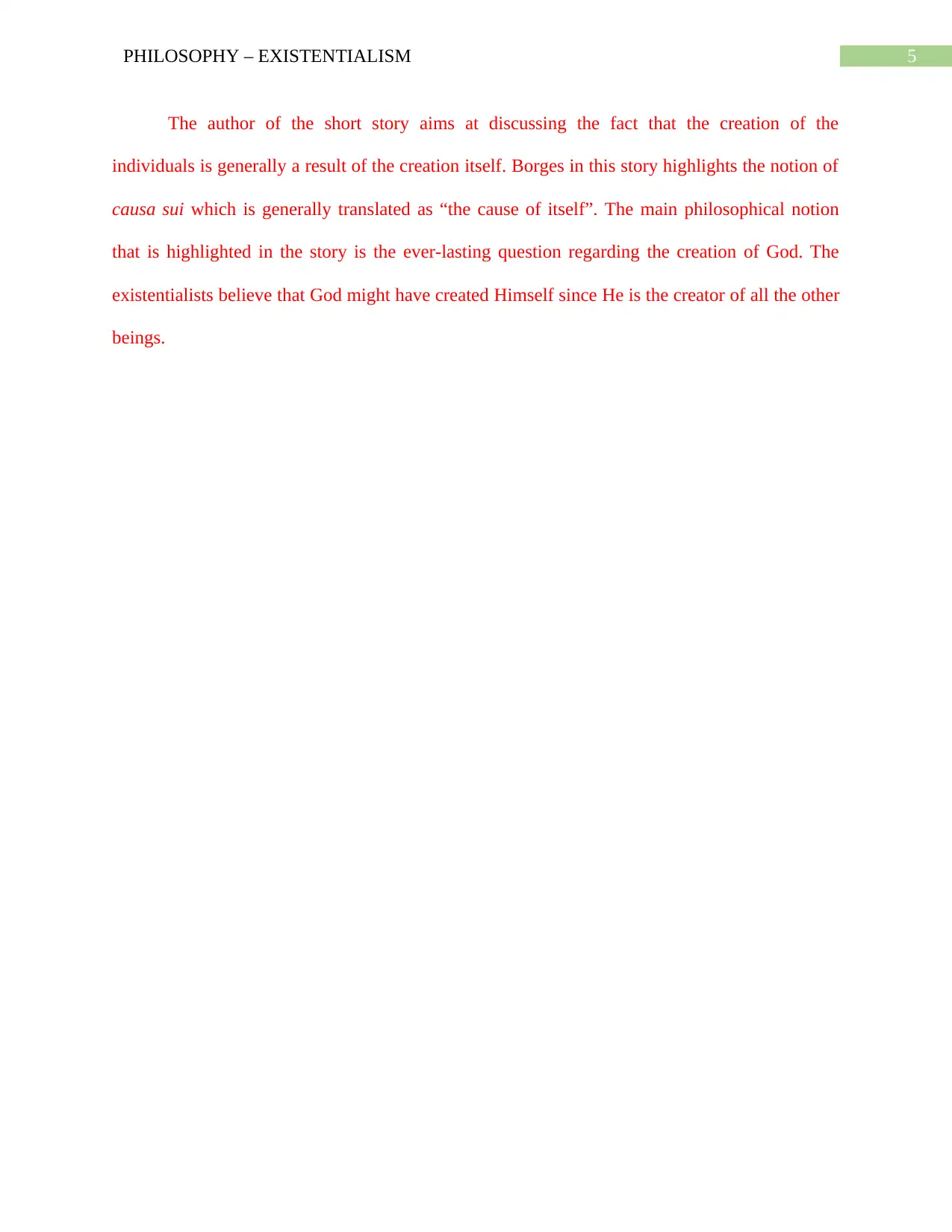
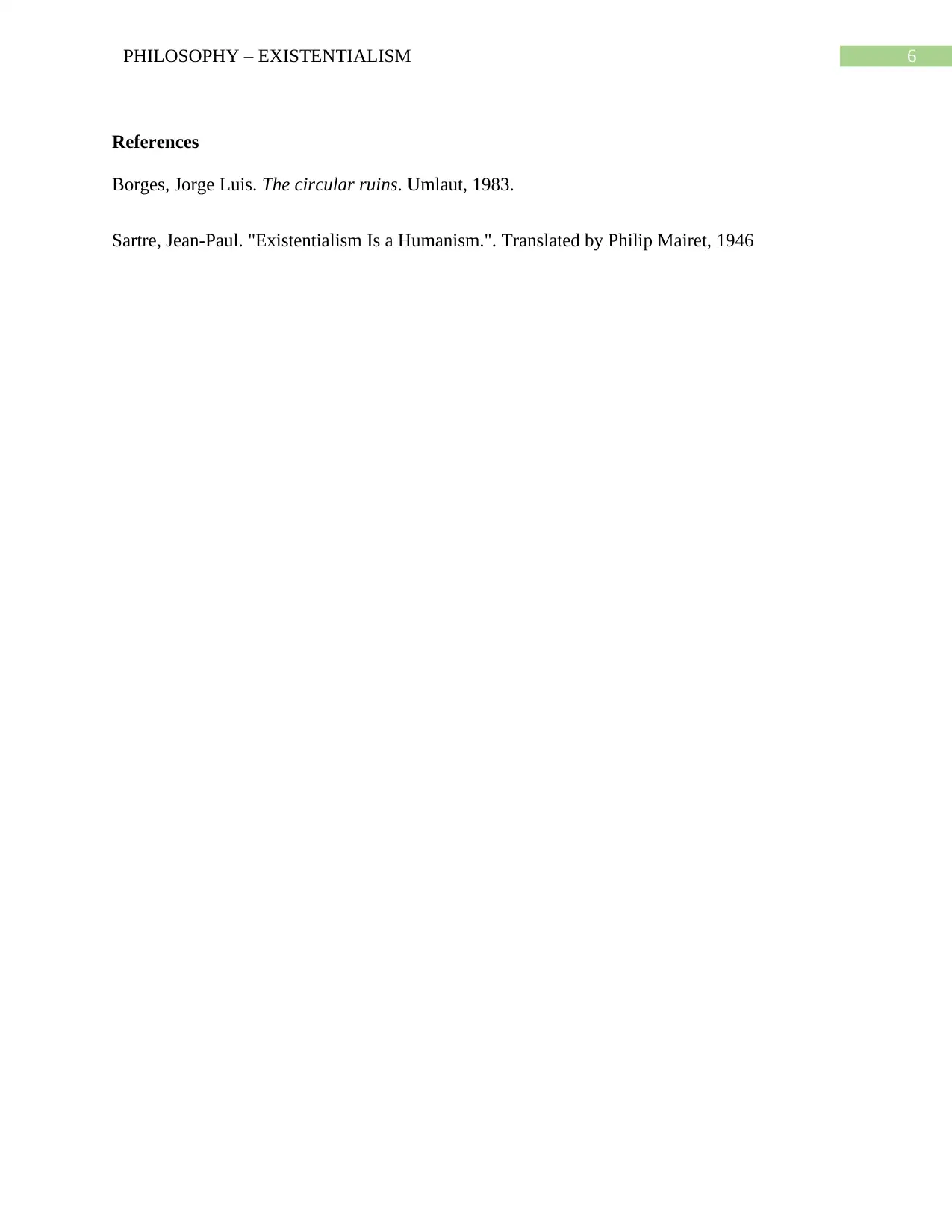



![[object Object]](/_next/static/media/star-bottom.7253800d.svg)